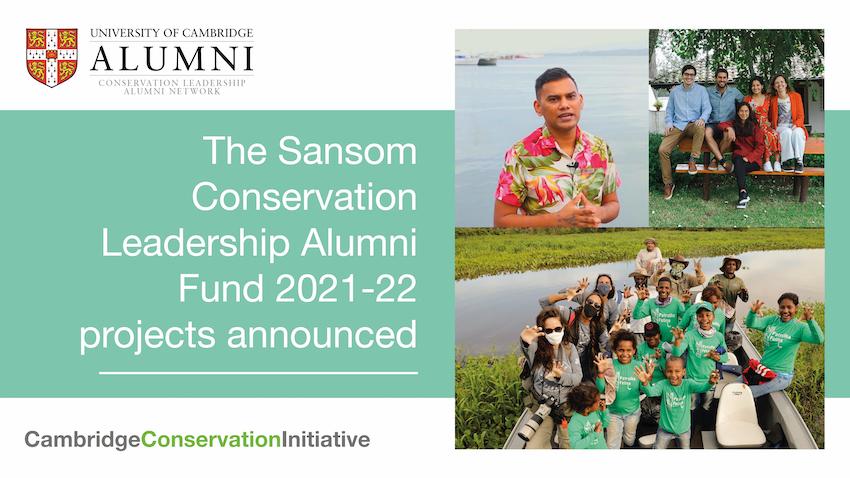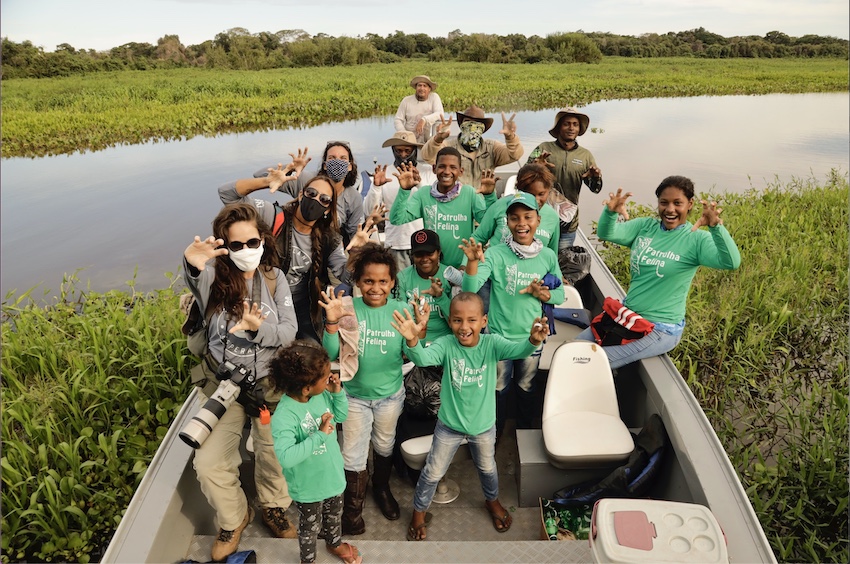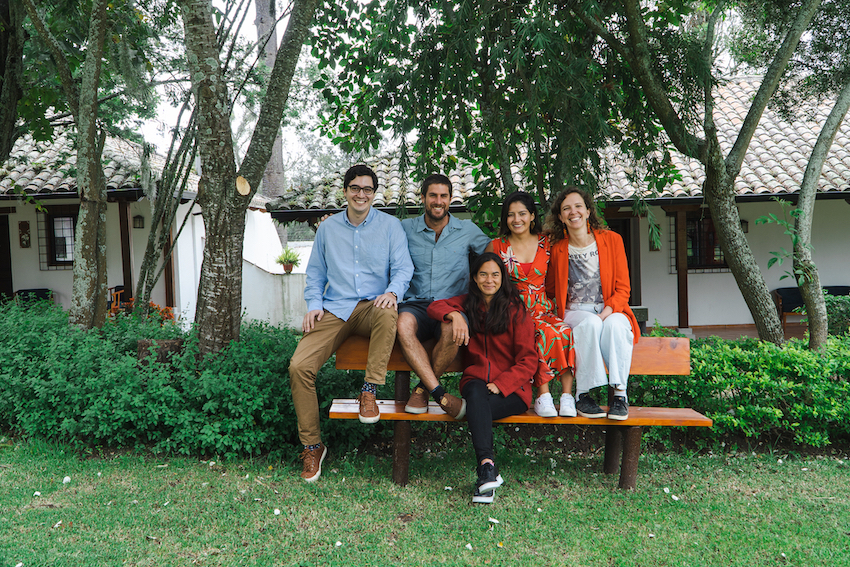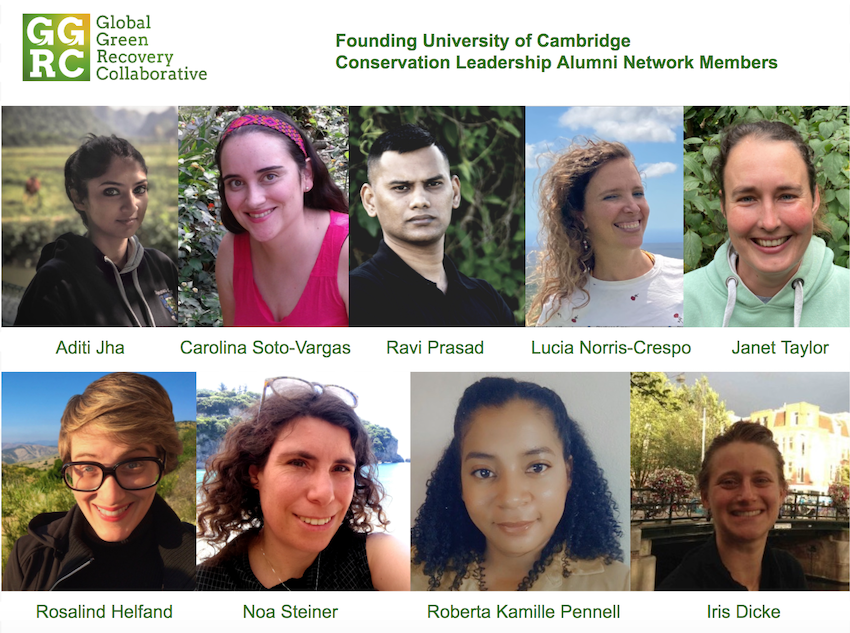
Submitted by S. Bolderson on Mon, 21/02/2022 - 10:39
From the first Conservation ActionLAB, to a global green recovery collaborative, to education in the Pantanal, the first three Sansom Conservation Leadership Alumni (SCLA) Fund projects have been announced.
The SCLA Fund has been established with thanks to the generosity of Robert Sansom to support high impact conservation projects undertaken by alumni from the University of Cambridge Masters in Conservation Leadership. In its inaugural year, the SCLA Fund received 17 applications from 16% of the network. Proposed projects were based in over 20 countries with a particular focus on Africa and South America, as well as some with global application. From these 17 projects, three were awarded funding by a Selection Panel of individuals from the Cambridge Conservation Initiative and the Alumni Network.
Course Director, Dr Chris Sandbrook, said ‘This dedicated fund allows us to support our alumni as they take the lead in conservation after graduation. I am so excited to see these projects flourish and I am extremely grateful to Robert Sansom for providing this generous support.’
Conservation Education in the Brazilian Pantanal: Promoting knowledge and care for nature among local communities
The first project builds on existing education work in the Pantanal. In 2020, the Brazilian Pantanal lost 30% of its territory to criminal and accidental fires with more than 17 million vertebrates killed by the flames. The biome is threatened not only by climate change and land-use change, but also by illegal hunting, overfishing, wildlife roadkill and many other anthropogenic pressures. Despite its ecological relevance and biodiversity, local youth are unaware of the need to protect the Pantanal. This project will allow the continuity and expansion of an environmental education project currently carried with local communities of this biome.
The project aims to continue and expand formal and informal educational efforts to teach youth from traditional and local communities from Mato Grosso and Mato Grosso do Sul states about the biodiversity in Pantanal and the need to protect this biome in peril. This project hopes that the long-term change in children’s knowledge about Pantanal and connection to its biodiversity and to the biome as a whole will lead to a genuine care for this biome when these children reach adulthood. They aspire for each child to become a voice for the protection of Pantanal, helping to promote and share pro-environmental values within their generation.
This project will be delivered by Luciana Leite (2013-14) and her team over an 18 month period.
Conservation ActionLAB for civic involvement in strategic conservation decision-making
The second project will prototype the first Conservation ActionLAB, a “war room” type of space for members of the alumni network to come together in times of conservation emergencies and rapidly design effective advocacy campaigns for civic involvement in decision-making. This space will exchange knowledge and complete the design of a campaign for a current emergency, the Andean Chocó Biosphere Reserve threatened by mining in Ecuador.
Conservation ActionLabs aims to respond to the conservation emergency in Ecuador using creativity, innovation, and the collective knowledge of a group of conservation leadership alumni. It wishes to help citizens of Quito to connect to the Andean Chocó, to better understand the importance of the ecosystem and be ready to take an informed decision in respect to the public consultation on allowing mining in the Biosphere Reserve. Not only this, it will act as a pilot project to provide Conservation ActionLabs' methodology for advocacy campaigns.
This six-month project will be led by Carolina Proaño- Castro (2015-16) and a team of three alumni: Bruno Monteferri (2010-11), Lucía Norris Crespo (2016-17) and Mariano Castro (2018-19).
Global Green Recovery Collaborative (GGRC)
The final project was founded in the midst of Covid-19 to look for collaborative and innovative solutions to this and other global environmental crises. The collaborative will drive on-the-ground conservation impact by facilitating collaboration, awareness, and inclusive action. They are building a collaborative network facilitated by an online platform where participants share knowledge, learn, and work collectively on the design and implementation of green recovery solutions.
GGRC will propel transformative action for a healthy planet where people and biodiversity thrive. People will be invited to participate in an innovative online platform designed to activate collaboration, learning, and action for a green recovery from Covid-19 and beyond. A tool to work collectively for on the ground impact, users at the local, national, and global levels will connect and engage with each other to: Share initiatives, join efforts, and share knowledge. GGRC aims to maximise the potential of UCCLAN, not only by bringing together and spotlighting more of our alumni and their diverse initiatives, but also by engaging them in a wider system of change aimed towards achieving a transformational green recovery.
This platform will be developed over the next two years by a growing number of alumni. Led by Rosalind Helfand (2018-19) and Ravi Prasad (2016-17), the core team includes Aditi Jha (2015-16), Lucia Norris-Crespo (2016-17), Carolina Soto-Vargas (2016-17), Janet Taylor (2016-17), Iris Dicke (2013-14), Noa Steiner (2016-17), Roberta Kamille Pennell (2016-17).
All three projects have begun their work, updates on their progress and findings can be found on their project web pages.



